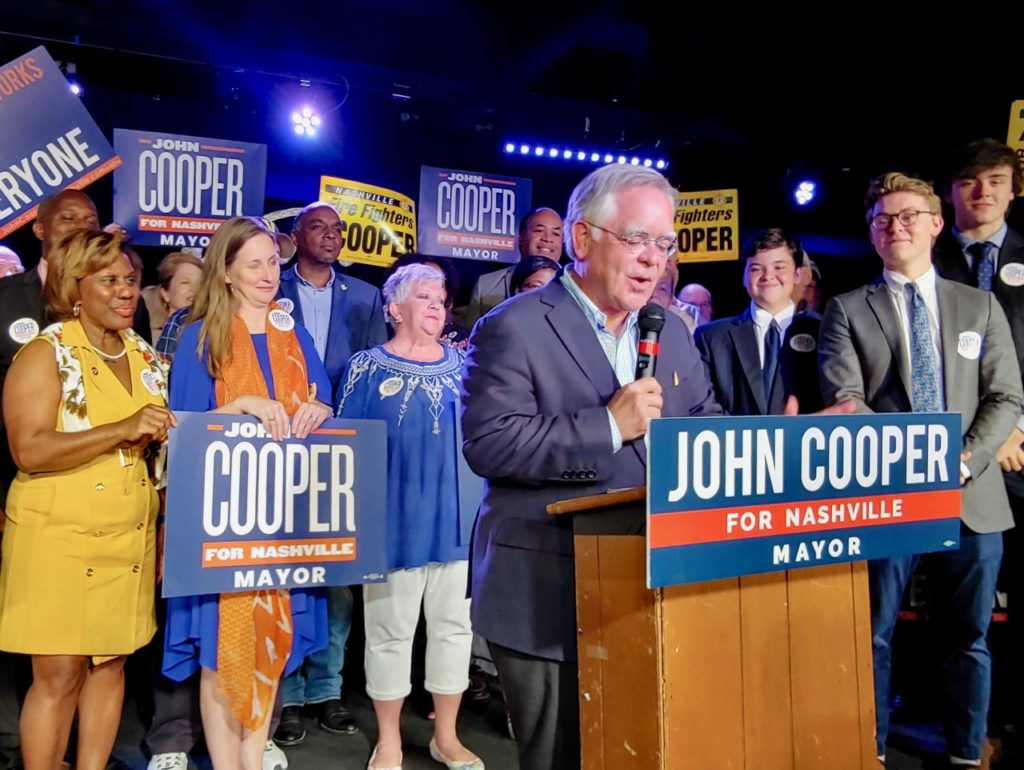
Nashville voters have chosen a new mayor.
Metro Councilman John Cooper defeated incumbent Mayor David Briley by about 40 percentage points, with nearly 70 percent of the vote. Nashville’s mayor-elect said he will prioritize funding neighborhoods that have not received the benefits of the city’s growth.
Many voters at polls across the city told WPLN they were voting for Cooper because of his focus on neighborhoods.
At his election party at the Nashville Palace — a music venue near the Gaylord Opryland Hotel — Cooper repeated his commitment to shifting money to the communities.
“And yes, it is that time to get tourism dollars going to residents, instead of residents’ dollars going to tourism,” Cooper said.
He identified southeast Nashville as the fastest growing area in the city and the one that needs the most investment.
Throughout this year’s mayoral race, Cooper highlighted a division between the inner city and those on the outskirts. But Cooper told reporters that voters united behind his message of building a city that works for everyone.
“I think you have an overwhelming mandate for managing growth going forward for all of our citizens together and getting that job done as a manager,” Cooper told reporters. “We can do it.”
Briley’s Parting Words: Racism Is The Problem
As Briley wrapped up his concession speech, he called out systemic racism as the city’s greatest challenge.
“While we may hope and believe that the worst of it is behind us, it still exists today,” he said. “We see it in our schools, in our work lives and across our city.”
Briley highlighted three programs that he created by executive order during his 18 months on the job. He said he believes they each have the potential to help racial inequity in the city, though they’re all new.
Under One Roof promises to dedicate more funding to public housing. Nashville Grad pays for non-tuition expenses, like textbooks, for students in community college. An equal opportunity business program directs more city contracts to minority-owned firms.
Briley says tackling gentrification, improving education and pulling people out of poverty all have a racial component that’s rarely discussed.
“When you’re in a majority white city, I think you want to bring everyone along as much as you possibly can. So it’s difficult to talk about issues of race without alienating people and without making the situation worse,” Briley told reporters after his speech.
“If we want to be a stronger city and see more people successful, we’re going to have to do more on that issue. We’re going to have to think more creatively about it and probably make some hard decisions.”
Most at risk under the new administration is the Under One Roof housing program, which Cooper has heavily criticized. In an
interview with WPLN, he effectively called the program a bailout for the city’s housing agency. Since it was created by executive order, the program could easily be overturned by a new mayoral administration.
Chas Sisk and Emily Siner contributed to this report.


